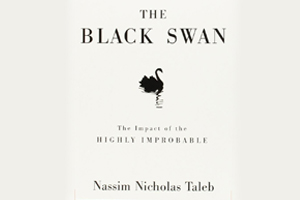Author: John Soforic
How often do we look towards our ancestors, especially our parents, for advice on managing and building wealth? Does financial wellbeing appear as a constant topic at your dinner table or do you prefer to sweep it under the rug and avoid discussing this imperative aspect? From Rich Dad Poor Dad to author John Soforic's The Wealthy Gardener: Life Lessons on Prosperity between Father and Son, there are a number of books which have been written around the theme of passing financial wisdom from parent to child, and as readers, you have the opportunity to garner the knowledge collected by these great minds. Written in an easy to decipher and emulate tone, Soforic's The Wealthy Gardener is a tale for the ages, and a tale which has stood the test of time.
John Soforic, a real estate entrepreneur, has attained complete financial autonomy, even though he spent his 20s struggling to attain wealth. He penned The Wealthy Gardenerto impart his insights on wealth and achievement to his son as he transitioned into adulthood, to ensure that his son would learn from his lessons, without having to repeat the mistakes he made on his journey of acquiring wealth. The book comprises brief narratives from an affluent elderly gentleman, through which he shares the financial wisdom accumulated over numerous years. Using concise yet profound anecdotes, he will educate you on the systematic accumulation of wealth, offering step-by-step guidance.
In modern society, discussing money remains a sensitive topic for many, yet its influence permeates every aspect of your lives. Money dictates your daily choices from your lifestyles to the opportunities you pursue. Despite its omnipresence, financial literacy often receives insufficient attention in education. In this scenario, The Wealthy Gardener: Life Lessons on Prosperity between Father and Son, bridges this gap. Drawing from his experience as a real estate entrepreneur who achieved financial freedom, Soforic uses the book as a conduit for imparting invaluable financial wisdom to his son, wherein each chapter interweaves fictional tales with personal reflections, offering practical insights into wealth accumulation and life lessons. Through both narrative and personal commentary, the book not only imparts financial knowledge but also serves as a guide to navigating the complexities of real-world finances and personal growth, making it a worthy companion for you if you are keen on building your wealth.
Key takeaways
- Embrace the natural rhythm of life's seasons, cherishing each phase rather than rushing through them.
- Prioritise cultivating healthy money habits over solely focusing on income generation for long-term wealth accumulation.
- Your tolerance threshold often shapes your lives more profoundly than your desires, influencing the outcomes you experience.
- Attaining financial freedom is not a singular achievement but a continuous lifestyle, driven by clarity in aspirations and relentless pursuit of financial goals.
- The journey to financial independence involves understanding the value of money and confronting the fear of scarcity, both of which are essential for achieving prosperity and freedom.
- There are repercussions of neglecting responsibilities, and neglecting wealth, even though it is for a short period of time.
- To enact change in life circumstances, consider revising your weekly schedule as it directly influences habits and behaviours, thereby leading to the desired outcomes.
As is often said, experience is the best teacher. However, to be successful in life, and in financial matters, you must have the ability to learn and imbibe the lessons offered by the experiences lived by others. When you start accepting and applying the lessons offered by individuals who have built their own wealth through years of hard work, you become better prepared to chart your own journey towards building sustainable wealth. Through easy to adopt practices and steps, Soforic's The Wealthy Gardener is a book which can empower you even if you are an investor who is at the beginning of her journey and has no real knowledge of how to attain financial wellbeing.
Remember to live, and not just compete
At its core, life is quite similar to the changing seasons we witness in nature from the rainy season to the winters and summers. Life is a masterpiece of natural rhythm, and the wise lessons imparted by the wealthy gardener underscore this profound truth. He emphasised the importance of embracing each season of life, urging his son – and you – to relish every moment of this beautiful journey. In the first phase of your life, lasting roughly thirty years, you learn the essence of money. This period mirrors the spring season, where seeds of financial literacy are sown and the subsequent three decades are dedicated to earning, akin to nurturing those seeds into fruition during the summer of your lives.
Finally, the last thirty years represent the autumn phase, where you reap the rewards of your labour, in a manner similar to a gardener, thereby harvesting the fruits of your financial endeavours. Understanding this natural cycle is paramount, especially for those in their twenties, often gripped by the fear of missing out or falling behind. Just as nature does not rush its processes, neither should you. Rather than succumbing to haste and comparison, you should emulate nature's patient grace, trusting in the gradual unfolding of your financial journey. Just as nature never fails to achieve its purpose, neither should you doubt your potential. Rather, embrace each season of life with gratitude and patience, knowing that every phase contributes to the rich tapestry of your financial growth and fulfillment.
Reject mediocrity at every step
The wealthy gardener imparted a crucial lesson to his son—one that carries immense significance even today: "We get in life the poorest conditions we will tolerate." This statement underscores the idea that your circumstances are a reflection of what you are willing to accept and not what you actually deserve. To transcend adversity, you must actively reject undesirable conditions and embark on the pursuit of your dreams. Therefore, you can strive to achieve greatness by first only receiving what you are willing to tolerate. If you passively accept underpayment or settle for a job that brings you no joy, you end up perpetuating your own dissatisfaction. Merely desiring change will not suffice; you must actively reject the status quo to instigate meaningful transformation.
To manifest your aspirations, the author advocates for a "five-year crusade", which entails setting long-term goals and crafting a strategic plan to achieve them. Whether your objectives take three, five, or ten years to realise, disciplined perseverance is essential and be it breaking free from debt, establishing a thriving business, or enhancing our circumstances, adopting this mindset is paramount to achieving success. Now, you might wonder why this approach is crucial. It is so because success, in any realm hinges on sustained action and not innate intelligence or sheer strength. By taking small, incremental steps each day, you can inch closer to your goals, steadily progressing in your endeavours.
Prioritise healthy money habits
Making money is just the beginning of financial success. What truly distinguishes the wealthy from the rest is how they manage their finances. Let us delve into what it means to be rich, in the words of the wise gardener. Through the experiences you accumulate in life, you come to the startling realisation that being rich is more than just having a high income. Rather, it is about having more money than you need to cover your expenses. In other words, being rich involves having a surplus, a cushion that allows for discretionary spending without worrying about making ends meet and, to achieve this state, you do not necessarily require a high income. Instead, you can achieve this state of financial abundance by living below your means. This means spending modestly, purchasing only that which is necessary, and saving the rest. Rather than striving to raise your income at all times, being rich is more about adopting a mindset of frugality and prioritising long-term financial security over short-term gratification.
Saving money, therefore, emerges as the most potent tool for building wealth. While increasing income is essential, true wealth accumulation occurs through disciplined saving and investing. The wealthy gardener argues that wealth is not about constantly earning more; it is about accumulating money over time and letting the power of compound interest work its magic. By living below your means and consistently saving a portion of your income, you gradually build a financial safety net that provides peace of mind and opens up opportunities for growth and prosperity. So, becoming rich will involve adopting sustainable financial habits that pave the way for long-term success, rather than relying solely on fluctuating income streams. Therefore, embarking on your journey toward financial independence requires a shift in mindset—from focusing solely on earning more to prioritising saving and investing. By adhering to this principle and consistently saving money after covering your expenses, you will be well on your way to achieving true wealth and calling yourself rich.
Soforic's treatise is simple, short and to the point. It tells today's youngsters to slow down, in their pursuit of greatness, to ensure that they truly live and enjoy life, rather than simply competing to be the best. Further, the book also highlights the importance of sustained action, while building one's future and teaches people the importance of curbing their spending to actually build wealth without putting tremendous pressure on themselves, when it comes to earning their income.
The golden truth of life is that a disciplined and long-term approach always works, especially in wealth creation. As mentioned in the book, savings should always precede spending and if you truly want to create wealth, then you must focus on harnessing the power of compounding. From that perspective, investing in mutual funds via the Systematic Investment Plan (SIP) route can be particularly beneficial. An SIP entails investing a fixed amount of money at fixed intervals that suit you best. Thus, when you start an SIP, it becomes easier to stay disciplined about your investments as the fixed amount of money is usually something that you are comfortable with investing on a periodic basis. Also, since you invest periodically, it is relatively easier to ignore behavioural biases, thereby ensuring that you continue to stay invested for the long-term. As a result, you are also well-positioned to harness the power of compounding which works best when you are committed for the long-term.
An investor education initiative by Edelweiss Mutual Fund
All Mutual Fund Investors have to go through a onetime KYC process. Investor should deal only with Registered Mutual Fund (RMF).
For more info on KYC, RMF and procedure to lodge/redress any complaints, visit - https://www.edelweissmf.com/kyc-norms
Trending Books
MUTUAL FUND INVESTMENTS ARE SUBJECT TO MARKET RISKS, READ ALL SCHEME RELATED DOCUMENTS CAREFULLY.













